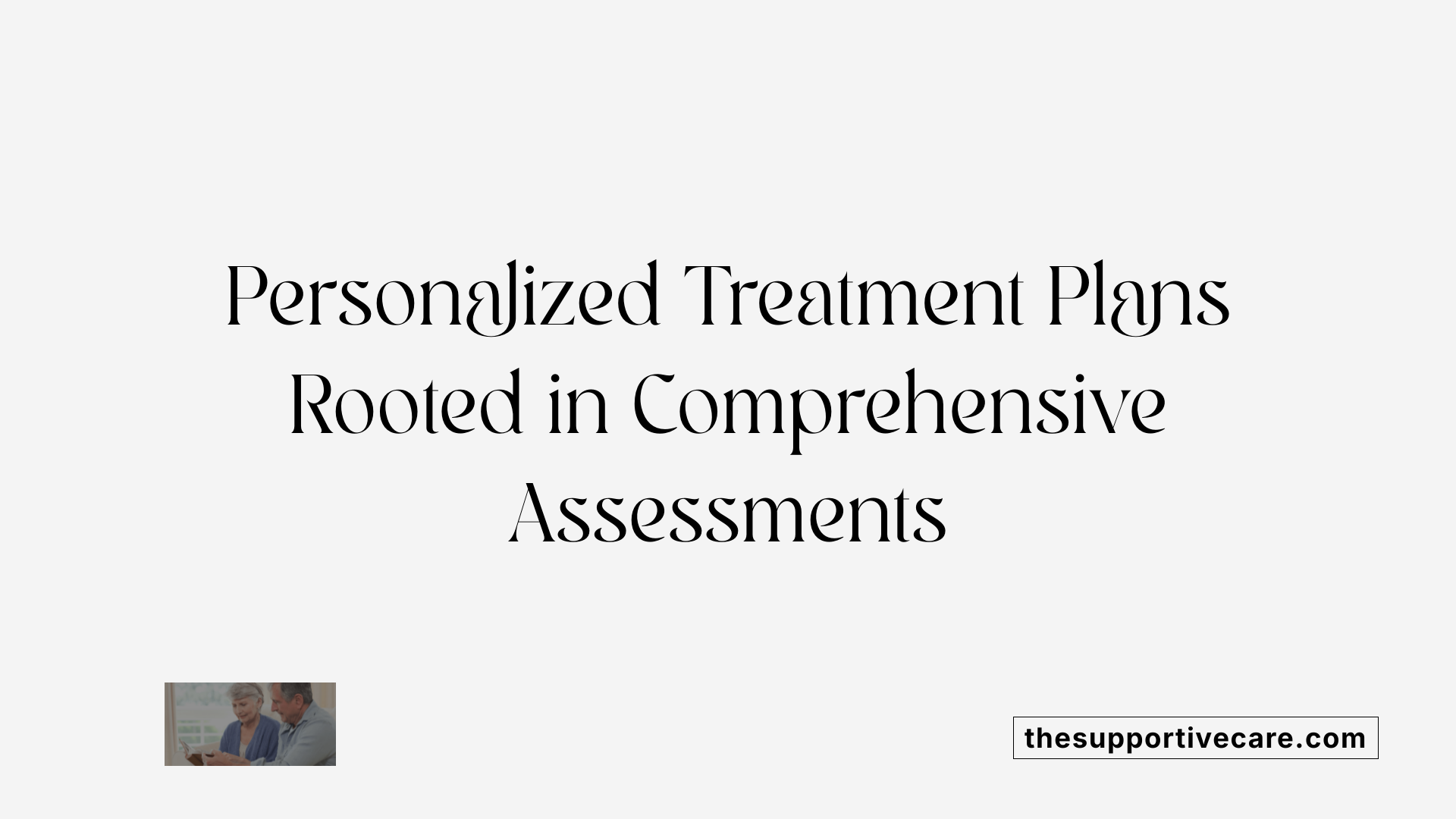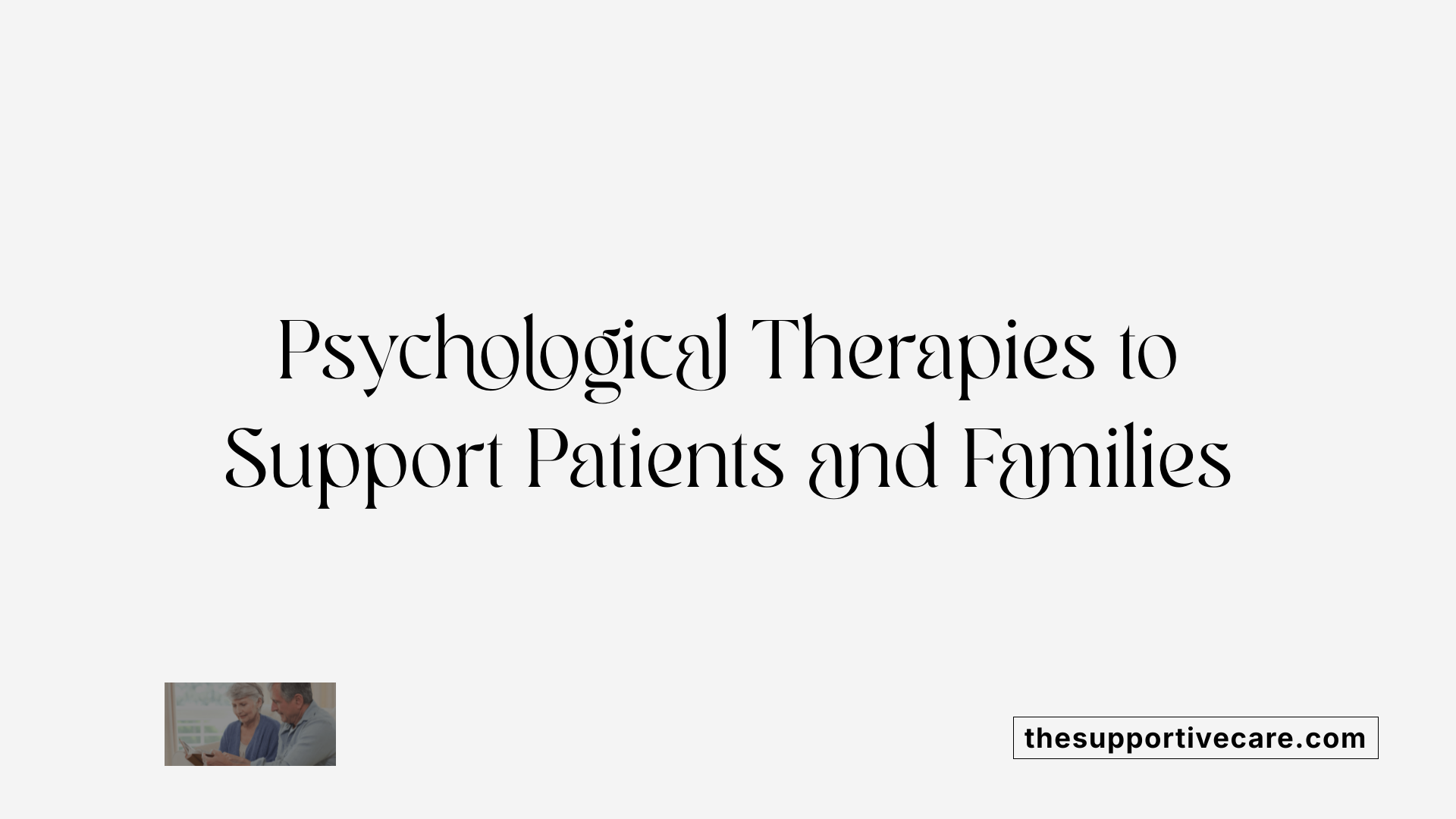The Critical Role of Psychiatric Assessments in Memory Care
Memory care for individuals with dementia requires a multifaceted approach that addresses not only cognitive decline but also the intertwined psychiatric, behavioral, and social challenges. Regular psychiatric evaluations serve as a cornerstone for identifying and managing complex mental health symptoms, guiding tailored treatment plans, and ultimately improving quality of life for patients and their caregivers. This article explores why consistent psychiatric evaluations are indispensable in comprehensive memory care, emphasizing their contribution to early detection, personalized care, caregiver support, and safety management.
Understanding the Importance of Regular Psychiatric Evaluations in Dementia Care
Why are regular psychiatric evaluations important in dementia care?
Regular psychiatric evaluations play a crucial role in managing dementia effectively. They help in early identification of mental health problems such as depression, paranoia, and mood swings, which are common among dementia patients. Detecting these issues early facilitates timely intervention and treatment, which can slow the progression of the disease.
Early diagnosis achieved through these evaluations not only aids in medical management but also supports emotional and practical preparation for both patients and their families. This preparation is essential as it allows patients to maintain confidence and comfort during the course of their illness.
Psychiatric assessments also contribute to personalized treatment plans that address individual patient needs. These plans often include medication management and complementary therapies such as music therapy, art therapy, or counseling, all aimed at enhancing quality of life.
Furthermore, routine evaluations help monitor changes in mental health status, enabling healthcare providers to address emerging issues promptly. This ongoing care reduces patient stress, maintains dignity, and supports emotional balance, which are vital components of comprehensive dementia care.
Early Diagnosis: Slowing Progression and Preparing Patients and Families
How do psychiatric evaluations contribute to early diagnosis and management in dementia?
Psychiatric evaluations play a crucial role in the early diagnosis of dementia by identifying subtle cognitive and psychiatric symptoms that might otherwise go unnoticed. These assessments help to detect conditions such as depression, paranoia, and mood swings that often accompany dementia. Early identification enables healthcare providers to develop tailored treatment strategies that can slow the disease's progression.
Diagnosing dementia early through psychiatric evaluations also provides patients and families the time to emotionally and practically prepare for the future. Families gain insights into the challenges ahead, which helps in arranging legal, financial, and care decisions with less stress. This preparation fosters emotional resilience and better coping strategies, enhancing quality of life.
Furthermore, interventions implemented at an early stage can ease symptoms, reduce behavioral conflicts, and improve overall well-being. Patients benefit from personalized treatment plans that may include medication and alternative therapies such as music or art therapy, increasing comfort and confidence. These combined effects demonstrate how early psychiatric evaluations contribute significantly to managing dementia effectively, improving outcomes for both patients and their caregivers.
Developing Individualized Treatment Plans Based on Comprehensive Assessments

Why is individualized care important in memory care and psychiatric evaluations?
Individualized care is essential in memory care and psychiatric evaluations because it ensures that treatment plans address each patient's unique cognitive and psychiatric profile. Dementia affects individuals differently, with variable symptoms such as depression, paranoia, mood swings, and behavioral issues. By tailoring treatment, clinicians can better meet the specific mental health and functional needs of each patient, which enhances their overall comfort and confidence.
Personalized medication management
After thorough psychiatric and cognitive assessments, personalized medication plans are designed to manage symptoms effectively. These plans consider the patient's medical history, comorbidities, and response to medications. Adjusting drug regimens helps slow disease progression, alleviate neuropsychiatric symptoms, and minimize side effects, ensuring safer and more effective care.
Incorporation of alternative therapies like music, art therapy, and counseling
Beyond medication, alternative therapies play a vital role in individualized treatment. Music therapy and art therapy stimulate cognitive functions and provide emotional expression outlets, helping reduce agitation and improve mood. Counseling and psychological interventions—such as cognitive behavioral therapy and acceptance and commitment therapy—support emotional well-being and help patients and families cope with dementia’s challenges.
Enhancement of patient comfort and confidence
Combining medication with alternative therapies creates a holistic care approach that addresses both physical and emotional needs. This personalized strategy enhances patient comfort, reduces distress, and fosters a sense of control and confidence even as cognitive function declines. Patients benefit from more meaningful engagement and improved quality of life.
In summary, individualized treatment plans developed through comprehensive assessments are crucial. They integrate medication and tailored therapies to meet the complex needs of people with dementia, supporting their dignity, comfort, and emotional stability throughout the disease course.
Routine Psychiatric Visits: Maintaining Emotional Balance and Dignity

Importance of ongoing psychiatric monitoring
Routine psychiatric visits play a vital role in dementia care by providing continuous monitoring of the patient’s mental health. Regular assessments enable healthcare providers to detect subtle changes or emerging symptoms early, which is essential for timely intervention.
Early identification of emerging mental health issues
Dementia frequently involves complex neuropsychiatric symptoms including depression, paranoia, and mood swings. Through scheduled visits, psychiatrists can identify new or worsening issues, such as agitation or anxiety, before they escalate. Early detection facilitates prompt adjustments to treatment plans, including medication or alternative therapies like music or art therapy.
Stress reduction and dignity preservation for patients
Maintaining a patient's emotional balance reduces stress and promotes their overall well-being. Psychiatric evaluations support strategies to manage behavioral symptoms compassionately, helping patients retain their dignity. This holistic approach also provides families and caregivers with guidance to reduce burnout, promoting a supportive environment conducive to better quality of life.
Regular psychiatric care is therefore integral not only to monitoring cognitive and behavioral changes but also to fostering emotional stability and respect for persons living with dementia.
Enhancing Safety and Managing Risks Through Psychiatric Assessment
How Are Risks Like Wandering, Falls, and Aggression Identified?
Psychiatric evaluations play a crucial role in detecting behaviors and symptoms that increase safety risks among dementia patients. Assessments focus on identifying disorientation that can lead to wandering, irritability or confusion that might cause aggression, and physical instability raising fall risks. Through detailed observation and interviews, clinicians recognize early signs of these behaviors to intervene promptly.
What Strategies Help Prevent Accidents and Prepare for Emergencies?
Once risks are identified, tailored strategies are developed to minimize accidents and manage emergencies safely. These include:
- Environmental modifications, such as securing exits to prevent wandering,
- Monitoring systems to quickly detect falls or unsafe activities,
- Behavioral interventions to reduce agitation and aggression,
- Training caregivers in emergency response protocols.
These preventive measures aim to promote patient safety while preserving dignity.
How Does Psychiatric Evaluation Contribute to Comprehensive Safety Management?
Psychiatric assessments are integral to comprehensive dementia care by combining mental health insights with safety planning. Evaluations inform multidisciplinary teams who implement structured routines and socialization programs that reduce risk behaviors. Moreover, ongoing psychiatric monitoring supports early detection of emerging hazards, allowing dynamic adjustment of care plans.
Through these measures, psychiatric evaluation strengthens overall safety and quality of life for dementia patients and their families.
Supporting Caregivers: Reducing Burnout With Psychiatric Evaluation and Education
How do caregiver communication skills training and education help reduce burnout?
Caregivers of individuals with dementia face daily challenges, including managing behavioral changes and emotional stress. Psychiatric evaluations provide caregivers with essential communication skills tailored to the unique needs of dementia patients. These skills enable caregivers to interact more effectively, reducing misunderstandings and conflicts. Improved communication fosters a more supportive environment, which helps alleviate feelings of frustration and burnout in caregivers.
What stress relief techniques and emotional support are provided?
Psychiatrists and psychologists offer caregivers various stress relief strategies, such as counseling sessions to express their feelings and learn coping mechanisms. Techniques like anticipatory grief work, acceptance and commitment therapy (ACT), and cognitive behavioral therapy (CBT) are employed to help manage emotional strain. Emotional support from mental health professionals also helps caregivers maintain their own well-being, ensuring they can provide sustained care without compromising their mental health.
How are caregiver burden assessment tools like the Screen for Caregiver Burden (SCB) used?
The Screen for Caregiver Burden (SCB) is a self-report questionnaire used during psychiatric evaluations to measure the distress level caregivers experience. By identifying specific areas of burden, mental health professionals can tailor interventions and social service referrals more effectively. Regular use of SCB allows for early detection of caregiver stress, enabling timely support to prevent burnout and enhance their caregiving capacity.
Through psychiatric evaluation and education, caregivers receive comprehensive support that enhances communication, provides emotional relief, and addresses burnout risks. This holistic approach improves both caregiver wellbeing and the quality of dementia care patients receive.
Multidisciplinary Approach to Psychiatric Assessment in Dementia
Role of psychologists and psychiatrists
Psychiatrists and psychologists work together in the psychiatric assessment of individuals with dementia by addressing both physical and behavioral symptoms. Psychologists conduct neuropsychological testing to evaluate cognitive impairment stages and emotional well-being, helping differentiate conditions like mild cognitive impairment and Alzheimer's disease. They also design culturally competent, person-centered care plans and provide vital therapies including cognitive behavioral therapy (CBT) and acceptance and commitment therapy (ACT) to support patients and families coping with dementia.
Psychiatrists contribute by evaluating neurological status and managing psychiatric symptoms such as depression, paranoia, and mood swings. Their medical expertise aids in assessing medication effects and physical health issues that affect mental health.
Use of cognitive and behavioral assessment tools like MOCA and BPRS
Highly effective tools like the Montreal Cognitive Assessment (MOCA) play a central role in differentiating mild cognitive impairment from early Alzheimer’s disease through testing various cognitive domains such as visuospatial skills, executive function, attention, and memory. Meanwhile, the Brief Psychiatric Rating Scale (BPRS) evaluates affective, psychotic, and behavioral disturbances, providing valuable data on psychiatric symptoms relevant to dementia care.
Adding to this, assessments like the Screen for Caregiver Burden (SCB) help identify stress levels in caregivers, a critical aspect of comprehensive dementia care. These assessment instruments collectively support diagnosis, treatment planning, and evaluation of caregiving needs.
Collaborative development of care plans
Psychologists and psychiatrists collaborate by integrating assessment findings into personalized treatment strategies. These plans often include medication management, psychosocial interventions, environmental adaptations, and sensory therapies such as music or animal therapy. This teamwork extends to caregiver education and support, teaching communication techniques, stress management, and behavioral guidance.
Their joint efforts also focus on safety and risk management by addressing wandering, falls, and aggression, ensuring patient dignity and emotional balance while reducing caregiver burnout. The multidisciplinary approach enhances overall dementia care effectiveness by blending medical, psychological, and social perspectives into a cohesive treatment model.
Psychological Interventions to Improve Patient and Family Well-being

What therapeutic approaches are effective for mental health issues in dementia?
Psychological interventions play a crucial role in supporting both dementia patients and their families. Therapies such as cognitive-behavioral therapy (CBT) and acceptance and commitment therapy (ACT) are effective in addressing the emotional and behavioral challenges commonly experienced. CBT helps patients and caregivers restructure negative thoughts and develop coping skills, while ACT emphasizes mindfulness and acceptance of difficult emotions.
Application of therapies like ACT and CBT
These therapies are tailored to the unique needs of individuals with dementia, fostering better emotional regulation and resilience. They assist families in adapting to the progressive nature of the disease, improving communication, and reducing feelings of helplessness.
Anticipatory grief work
Anticipatory grief work is another important approach used to prepare patients and families emotionally for future losses associated with dementia progression. This intervention enables acceptance and helps reduce anxiety and depression related to the uncertainties of the illness.
Behavioral management strategies for agitation and wandering
Managing behavioral symptoms such as agitation and wandering is vital for patient safety and care quality. Behavioral assessments guide caregivers in implementing personalized strategies that may include environmental modifications and sensory therapies, which collectively reduce distress and improve patient comfort.
Together, these psychological interventions significantly enhance the quality of life for individuals with dementia and their caregivers, promoting emotional balance and reducing burden.
The Role of Environmental and Sensory Therapies in Memory Care
Use of Music and Animal Therapy
Music and animal therapy are increasingly incorporated into dementia care to enhance comfort and reduce distress. Music therapy employs familiar songs and rhythms to stimulate memory and emotion, often leading to decreased agitation and improved mood in patients. Similarly, animal-assisted therapy introduces interaction with pets or therapy animals, which can soothe anxiety, encourage socialization, and reduce feelings of loneliness.
Environmental Modifications to Reduce Behavioral Symptoms
Modifying the environment plays a critical role in managing behavioral symptoms in dementia. Adjustments might include reducing clutter, enhancing lighting to minimize shadows and confusion, and creating calming spaces with soft colors. Such changes help minimize agitation and wandering behaviors, improving overall safety and emotional stability for patients.
Enhancing Patient Comfort in Advanced Dementia
In advanced stages of dementia, sensory therapies like music and animal interactions become particularly valuable for maintaining quality of life. These approaches address unmet emotional needs, offering comfort when verbal communication becomes limited. Alongside environmental modifications, they create a supportive atmosphere that respects patient dignity and fosters emotional well-being.
These therapies complement traditional medical treatments by focusing on emotional and sensory engagement, representing a holistic approach to memory care that benefits both patients and caregivers alike.
Culturally Competent Care and Its Impact on Dementia Treatment
Addressing racial, ethnic, and socioeconomic disparities
Dementia care must recognize and address the diverse backgrounds of patients. Racial, ethnic, and socioeconomic disparities can influence the risk, diagnosis, and treatment outcomes for dementia. By acknowledging these differences, care providers can tailor interventions that consider cultural values, health beliefs, and resource accessibility, thereby making care more effective and equitable.
Psychologist involvement in culturally sensitive assessments
Psychologists play a critical role in delivering culturally competent dementia care. They employ assessment instruments designed to understand how dementia affects individuals from various cultural backgrounds. These assessments are not only focused on cognitive functioning but also on psychological well-being and cultural context. Involving psychologists ensures that diagnosis and treatment plans respect cultural nuances, which helps in creating person-centered approaches that align with patients’ and families’ values.
Improving quality of life through culturally informed practices
Incorporating culturally informed practices in dementia care enhances patients’ quality of life and emotional well-being. Strategies include communication techniques that are sensitive to cultural norms, providing support in the patient's native language, and integrating culturally relevant therapies. These approaches build trust and confidence among patients and caregivers, reduce anxiety and behavioral challenges, and promote dignity. Ultimately, culturally competent care fosters a supportive environment that improves overall treatment outcomes and caregiver satisfaction.
Comprehensive Cognitive and Functional Assessments in Memory Care
What cognitive tools are used in dementia evaluation?
Several widely recognized cognitive assessment tools aid in detecting and monitoring dementia. The Mini-Mental State Examination (MMSE), Montreal Cognitive Assessment (MOCA), and Mini-Cog are commonly used screenings.
- MMSE assesses orientation, recall, attention, and language skills.
- MOCA is more sensitive for early detection, evaluating domains such as visuospatial abilities and executive function.
- Mini-Cog combines a three-item recall with a clock-drawing test for quick cognitive screening.
These tools help distinguish mild cognitive impairment from more advanced dementia and guide further diagnostic steps.
How is functional impairment assessed in older adults with memory issues?
Functional status evaluation focuses on an individual's ability to perform everyday tasks critical for independent living. Two key measures are:
- Lawton Instrumental Activities of Daily Living (IADL) scale: Assesses abilities like managing finances, transportation, shopping, and medication use.
- Older Americans Resources and Services (OARS) scale: Provides a broader assessment including physical health, social support, and mobility.
These assessments inform healthcare providers about the patient’s capacity to live safely and independently.
Why are these assessments important for treatment planning and safety?
Combining cognitive and functional assessments offers a holistic view of a patient's condition. This comprehensive approach enables:
- Personalized treatment plans tailored to both cognitive and practical needs.
- Identification of safety risks, such as falls or wandering, allowing for preventive strategies.
- Monitoring disease progression to adjust care promptly.
Ultimately, these evaluations support improved quality of life by balancing medical management, functional support, and caregiver involvement.
Biopsychosocial Approach in Psychiatric Care for Older Adults with Dementia
Integration of Medical, Psychological, and Social Factors
Psychiatric care for older adults with dementia necessitates a holistic biopsychosocial approach. This means integrating medical assessments, psychological evaluation, and social context to fully understand and address the complex needs of these patients. Medical evaluations include detailed history-taking, physical exams, and lab tests to identify any comorbid conditions that might influence mental health symptoms.
Psychological evaluations, often involving neuropsychological tests such as the Montreal Cognitive Assessment (MOCA), help to clarify cognitive deficits and psychiatric symptoms. Concurrent social assessments explore factors like social support networks, grief, retirement, cultural background, and coping mechanisms, all of which significantly impact mental health and treatment outcomes.
Management of Comorbid Medical Conditions
Older adults frequently present with multiple medical conditions that contribute to neuropsychiatric symptoms. Endocrine, cardiovascular, and rheumatologic disorders, as well as substance use including alcohol and prescription medications, can all affect cognition and mood. Effective psychiatric care emphasizes managing these comorbidities through coordinated medical and psychiatric interventions to reduce symptom burden and improve overall functioning.
Laboratory testing routinely encompasses thyroid function, electrolytes, blood counts, vitamin levels, and infection screenings to uncover treatable causes of cognitive or psychiatric changes. Neuroimaging is reserved for cases with neurological signs or suspected underlying brain pathology.
Attention to Psychosocial Stressors Such as Grief and Social Support
Psychosocial factors play a crucial role in the mental health of older adults with dementia. Grief from losses, adjustment to retirement, changes in family roles, and cultural expectations can intensify psychiatric symptoms. Conversely, older adults often gain emotional regulation and wisdom, which can be leveraged therapeutically.
Addressing these stressors involves providing caregiver counseling, education, and support groups to relieve caregiver burden and enhance communication. Interventions such as acceptance and commitment therapy (ACT) and cognitive behavioral therapy (CBT) help patients and families cope with the emotional impacts of dementia.
Together, deploying a biopsychosocial framework in dementia care results in more personalized, effective care plans that enhance quality of life for both patients and their caregivers.
Addressing Substance Use and Its Psychiatric Impact in Older Adults

Role of Substance Use in Psychiatric Symptoms
Substance use significantly influences the psychiatric presentation of older adults. Issues such as alcohol misuse or prescription medication overuse can exacerbate or mimic dementia symptoms, complicating diagnosis and treatment. Recognizing substance use is essential for accurate psychiatric evaluation and effective management.
Integration of Substance Abuse Treatment in Memory Care
Comprehensive treatment services address both addiction and psychiatric disorders through a coordinated approach. This includes medical detoxification, cognitive-behavioral therapies, medication-assisted treatments, and continuous mental health support. Tailoring interventions for older adults integrates addiction treatment within dementia care plans, helping to manage co-occurring disorders and improve overall outcomes.
Importance of Laboratory and Neuroimaging Tests
Laboratory assessments are vital in evaluating substance use impacts, including tests for liver and kidney function, blood counts, and drug levels. Neuroimaging may be employed when neurological impairments are suspected, aiding in differentiation between substance-induced symptoms and neurodegenerative changes.
By incorporating thorough medical and psychosocial evaluations, including substance use screening and appropriate diagnostic testing, healthcare providers can deliver holistic care that addresses the complex interplay of addiction and psychiatric conditions in older adults.
Integrating Psychiatric Evaluations into Comprehensive Memory Care Services

Combining Dementia Care with Psychiatric Assessments
Psychiatric evaluations are a crucial component of comprehensive dementia care. These assessments involve multidisciplinary professionals who address both cognitive and behavioral symptoms. By integrating psychiatric evaluations with dementia care services, facilities often employ trained staff skilled in recognizing mental health challenges such as depression, paranoia, and mood swings common in dementia patients. This integration ensures early detection and personalized intervention strategies.
Structured Routines and Socialization Programs
Care settings that combine psychiatric assessments with dementia care typically establish structured daily routines and socialization activities. These programs provide stability and help maintain emotional balance, reducing stress and behavioral symptoms like agitation and wandering. Sensory therapies, including music and animal therapy, are often incorporated, enhancing patient comfort and interaction. Socialization fosters engagement, which can improve cognitive function and mood.
Overall Benefits for Patient Independence and Caregiver Confidence
Families and caregivers notice significant improvements from integrated care approaches. Patients benefit from increased independence and better management of behavioral problems. Caregivers receive targeted support and education, which improves communication skills and reduces stress and burnout. This collaborative model enhances patients’ dignity and emotional well-being while giving caregivers greater confidence. Ultimately, combining psychiatric evaluations with dementia care results in a more effective, compassionate support system for both patients and their families.
The Imperative of Consistent Psychiatric Evaluations in Dementia Care
Regular psychiatric evaluations stand as a vital pillar throughout the continuum of memory care, enabling early diagnosis, personalized treatment, risk management, and holistic support for both patients and caregivers. By embracing a biopsychosocial approach and leveraging multidisciplinary expertise—including psychological and medical assessments—memory care services can significantly improve quality of life, enhance patient safety, and reduce caregiver burden. Moreover, integrating culturally competent practices and addressing co-occurring substance use disorders ensure equitable and comprehensive care. Ultimately, routine psychiatric evaluations empower providers, patients, and families to navigate the complex challenges of dementia with informed resilience and dignity.
References
- Benefits of Psychiatric Evaluation for Dementia
- Psychiatric assessment of patients with dementia in the ...
- Improving the quality of life for patients with dementia and ...
- Psychiatric Assessment and Diagnosis in Older Adults
- Home | SAMHSA - Substance Abuse and Mental Health ...
- Substance Use Disorder (SUD): Symptoms & Treatment
- TIP 27: Comprehensive Case Management for Substance ...
- Therapy For Substance Abuse Treatment
- Substance Use Disorder (SUD): Symptoms & Treatment
- Integrated Treatment of Substance Use and Psychiatric Disorders



































































































